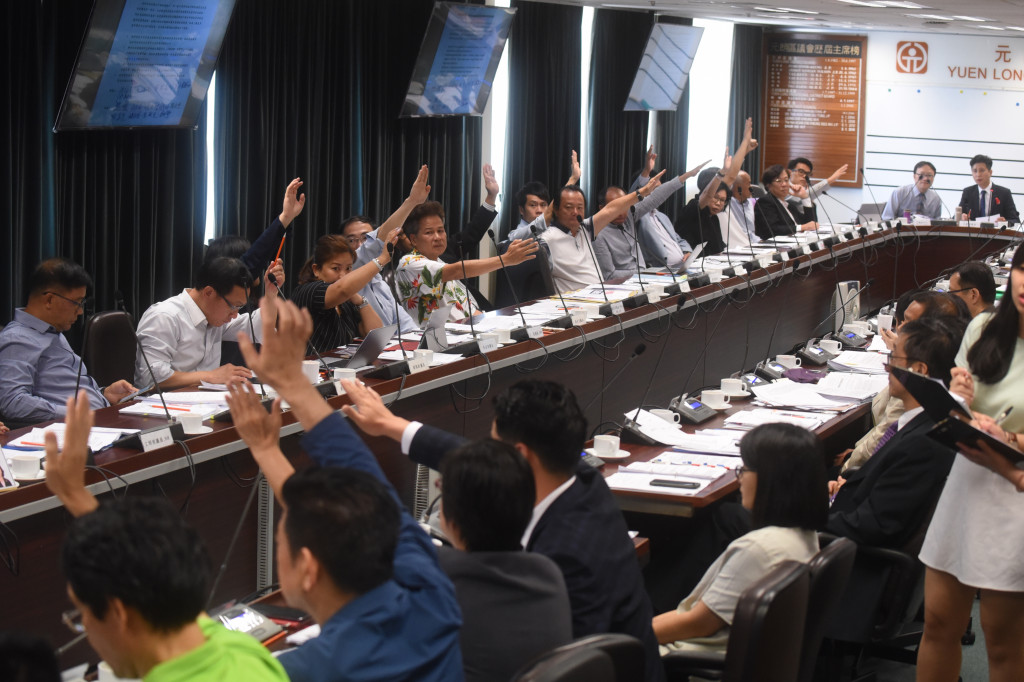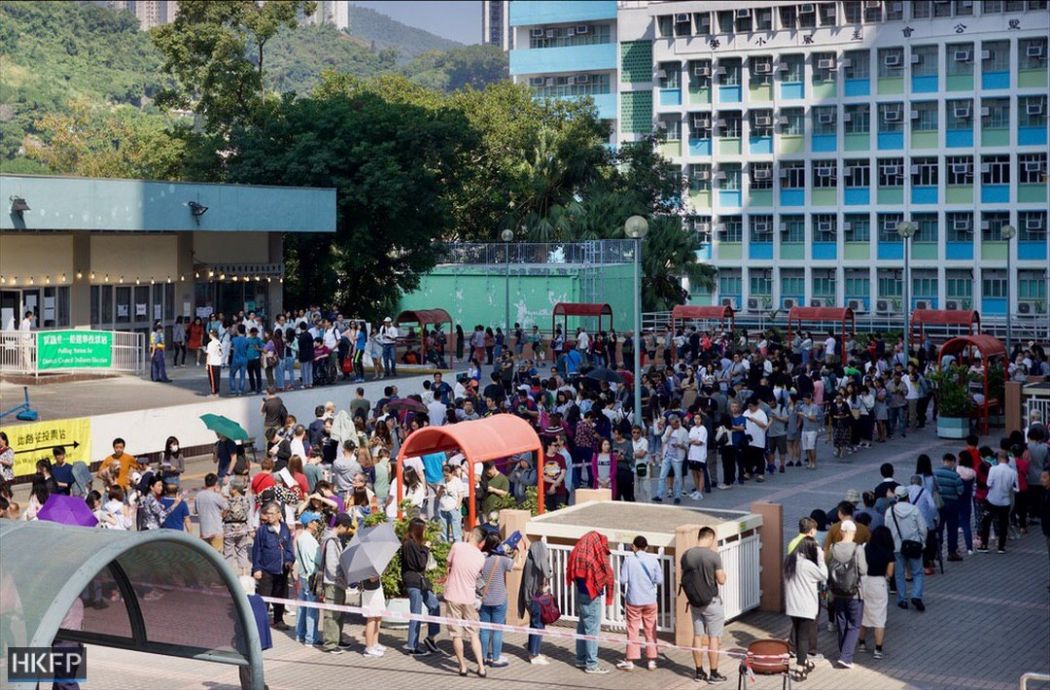Hong Kong democrats gained control of 17 out of the city’s 18 district councils after a landslide win in Sunday’s election. The race, held every four years, took place amid months of unrest and pro-democracy demonstrations, and it remains the territory’s only truly democratic election.

It was an unprecedented result as – before the opposition captured 389 of the 452 seats – all of the district councils were held by the pro-Beijing camp.
In Wong Tai Sin, they gained complete control of the council, with all pro-Beijing candidates knocked out.
Democrats will now gain all 117 of the District Councillor seats in the chief executive election committee because of its winner-takes-all rule. It will further increase their power within the committee, though the city’s leader is still selected by a largely pro-establishment circle of voters.

Whilst the opposition will also win the District Council (First) seat in the Legislative Council elections next year, district councillors only have an advisory role to the government and have little power to change the current political structure.
Mostly, they will deal with local matters such as littering, rat problems, traffic flow issues or minibus routes. So what action can representatives really take when they control a district council?
Abolish proxy votes
Most District Councils, except in Yuen Long, Sha Tin, Sai Kung, Eastern and Southern, allow proxy votes so that – even if district councillors are not present at meetings – their votes still count. Councillors may choose a nominee, who can vote however they wish.
The proxy vote system has not been not used frequently, according to a count undertaken by newly elected Mong Kok East constituency District Councillor Ben Lam of the Community March group. However, Lam said that proxy votes were often crucial for voting on controversial issues. Even if pro-Beijing camp councillors were not present, they were able to overrule motions proposed by democrats.

“Why can absent councillors, who did not participate in the discussion, use a proxy for others to vote [on their behalf]? What is the basis for other people to decide how to vote for the absent councillors?” Lam asked.
With democrats controlling most District Councils, the proxy vote system will likely be eradicated.
Repeal extravagant projects
District Councils were each allocated HK$100 million to carry out the government’s Signature Project Scheme, introduced in 2013. One of the most controversial projects, described as a “white elephant,” was the Kwun Tong musical fountain which had a price tag of HK$50 million. The funding was, however, passed by the Legislative Council and construction has begun.

Multiple district councillors-elect have said they will try to halt the project. Edith Leung, a newly elected Democratic Party district councillor for Kwun Tong Central constituency, told Apple Daily that the pro-Beijing camp had intentionally left a previous District Council meeting to stop democrats from discussing the issue, but she believed the situation will not occur again.
“Although the District Council is just an advisory body, should the council strongly urge the government to halt the project, I believe the government will be unable to explain why it does not listen to us,” she said.
The funds can also be spent on more practical projects. The Kwai Tsing District Council spent the funds on dental and eye healthcare services and home maintenance programmes for impoverished elderly people, among other programmes.

A “Yellow Economic Circle”
A major function of district councillors is to approve local funding. This includes money for infrastructure, travel tours, as well as cultural and sports events, among other items.
District Councils, when controlled by the pro-Beijing camp, have often been criticised for approving funding to pro-establishment “satellite groups” so that the camp indirectly benefits from government funding.
During the ongoing protests, many have called for the creation of a sustainable “yellow economic circle” – referring to people frequenting businesses who support the protests and democracy in general.

Nui Sau-fu, a former civil servant who worked on District Council matters, said in an InMedia article that democrats can now use the funding to support their own initiatives, including laser pointer parties for Mid-Autumn Festival, permanent “Lennon Wall” message boards, street markets, fitness classes, community art teams, or purchasing equipment to measure dioxin levels after numerous tear gas canisters were fired in residential districts.
“I hope all of the new district councillors can use resources well to give back to communities, to strengthen support from every single voter,” Nui wrote.
Reclaiming power from the government?
Despite the major win, the power of district councillors remains limited.
Kong Kwai-sang is a Lee Cheng Uk constituency district councillor with the Association for Democracy and People’s Livelihood who was re-elected on Sunday. He said that when the government abolished the Urban Council in 1999, it did not keep its promise of handing on some powers to the District Council.

Urban Council had extra powers, including the independent oversight of finances and lands rights, making them influential bodies where elected councillors were effectively able to govern district policies. But after the Urban Council was abolished, the administrative powers were transferred to the Leisure and Cultural Services Department, the Food and Environmental Hygiene Department, the Highways Department and the Lands Department.
“We need to push forward more reforms in the hopes of turning the District Council from an advisory body into a municipal body with real power,” Kong said.
For instance, Kong said District Councils can install a public hearing system so that residents can directly participate in district affairs, as well as other measures to strip power from district government officials by amending the District Councils Ordinance.
“I welcome all suggestions,” he said. “We need to start the discussion now. Four years is not a long time.”
Hong Kong Free Press relies on direct reader support. Help safeguard independent journalism and press freedom as we invest more in freelancers, overtime, safety gear & insurance during this summer’s protests. 10 ways to support us.

